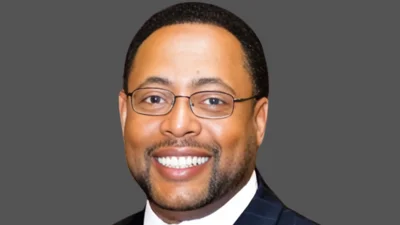Will Rosignal Digital Outreach Associate at the Badger Institute | badgerinstitute.org
Will Rosignal Digital Outreach Associate at the Badger Institute | badgerinstitute.org
The rollout of a $1 billion broadband expansion plan in Wisconsin is facing significant challenges due to government overregulation, according to industry insiders. The plan, part of the $42 billion federal Broadband Equity, Access, and Deployment (BEAD) program under the Infrastructure Investment and Jobs Act of 2021, has yet to connect any households or businesses with broadband fiber. Program directors acknowledge that work may not commence until well into next year.
Summer Strand, chair of the Wisconsin Public Service Commission (PSC), expressed doubts about completing the project by 2030. "It doesn’t mean the money is going to flow in 2025 and everyone’s going to be online in 2026," she stated. "My conservative estimate would be that we would be close to serving every underserved and unserved location in the state by 2030."
Estimates for completing broadband access have risen significantly. The PSC estimates costs at $1.8 billion, while a report from the American Society of Civil Engineers puts it at $2.2 billion. Governor Tony Evers and his Task Force on Broadband Access are seeking additional state funding but have not specified an amount.
Telecom companies criticize BEAD's regulations as overly burdensome. Two anonymous industry sources indicated that without changes, some companies might withdraw from bidding on contracts. "There is a high level of political sensitivity right now," one source said. "This feels like a program designed by politicians."
Several companies, including AT&T, Spectrum, and Comcast, have filed letters of intent with the PSC to bid on contracts primarily in rural areas of Wisconsin. However, concerns persist about profitability due to regulatory requirements.
Applicants must comply with permitting and environmental standards and hiring preferences for unionized labor and individuals with criminal backgrounds. The program mandates using only broadband fiber, excluding satellite and wireless options that could be more cost-effective.
Equity considerations further complicate matters; the PSC's state plan references equity 250 times across 135 pages without clear guidance for companies on its impact.
A nationwide service rate cap of $40 per month for low-income families poses another challenge for small telecom firms. One industry member remarked: "One of the biggest issues here is the effort to socially engineer what amounts to a tech project."
Despite negative feedback from potential bidders, the PSC has agreed to establish a rate negotiation process post-expansion costs but offers no guarantees on pricing flexibility.
In Minnesota, similar regulatory challenges have led some major telecom companies to oppose BEAD participation openly. Brent Christensen, president of Minnesota Telecom Alliance, stated none of his represented companies would join BEAD efforts due to its burdensome nature.
Christensen echoed concerns shared by other industry figures: "People have asked me why I spoke up," he said. "I said I am doing this because when this program falls flat on its face, I can say I told you so."
Mark Lisheron serves as Managing Editor at Badger Institute.






 Alerts Sign-up
Alerts Sign-up